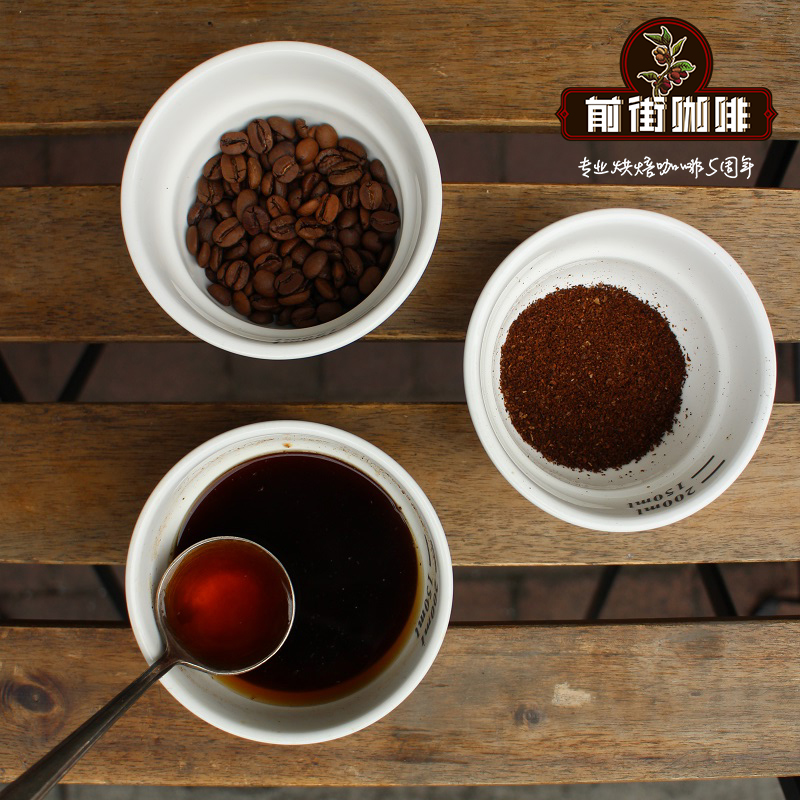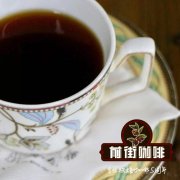How to drink coffee in moderation? How much to drink at most
Professional coffee knowledge exchange more coffee bean information please follow the coffee workshop (Wechat official account cafe_style)

Coffee is currently the longest-used but most misunderstood beverage. Many new research reports show that in many ways, caffeine is not harmful to human health as thought in the past; on the contrary, some ingredients in coffee have many health effects on the human body, which scientists have gradually discovered.
At present, it is known that the physiological responses of the special ingredients of coffee to the human body are as follows:
Antioxidant effect: coffee is rich in caffeine, caffeic acid, chlorogenic acid and other ingredients, which can effectively resist free radicals that threaten our health. Free radicals are the main cause of many diseases (such as cardiomyopathy, arteriosclerosis, stroke, emphysema, Parkinson's disease). Too much free radicals will affect the metabolism of the body, destroy cells and then affect organs and tissues.
Cardiovascular protection: coffee contains high-content polyphenol compounds, which are powerful antioxidants, which can delay the oxidation of LDL by up to three times, dissolve blood clots and prevent the formation of blood clots; coffee can also enhance vasoconstriction and avoid vascular dilatation and headache. In addition, a small amount of coffee can also enhance myocardial contractility, promote blood circulation and prevent cardiovascular disease.
Coffee is good for the skin. Coffee can promote metabolic function, activate digestive organs, and has a great effect on constipation. Taking a bath with coffee powder is a kind of thermotherapy, which has the effect of losing weight.
Coffee has the function of relieving alcohol. Drinking coffee after drinking alcohol will quickly oxidize the acetaldehyde converted from alcohol, decompose it into water and carbon dioxide and discharge it out of the body.
Coffee can relieve fatigue. In order to eliminate fatigue, we must supplement nutrition, rest and sleep, and promote metabolic functions, and coffee has these functions.
The current recommendation for healthy people is to consume 400 milligrams of caffeine a day. This is about four 8-ounce cups of brewed coffee.
Important Notice :
前街咖啡 FrontStreet Coffee has moved to new addredd:
FrontStreet Coffee Address: 315,Donghua East Road,GuangZhou
Tel:020 38364473
- Prev

What if I drink coffee and get it on my clothes? How to clean it up?
Professional coffee knowledge exchange more coffee bean information Please follow the coffee workshop (Wechat official account cafe_style) when there are coffee stains on the clothes, we need to choose different cleaning methods according to the material of the clothes. Cotton clothes: you can choose to use oily detergents to remove oily substances from coffee, and then use neutral reagents (such as baking soda). Never use strong acids or bases.
- Next

Can everyone drink coffee? Who can't drink?
Professional coffee knowledge exchange more coffee bean information Please pay attention to coffee workshop (Wechat official account cafe_style) although drinking coffee has a certain health effect on the human body, but it is not suitable for everyone, especially for people in poor health or with certain diseases, it will be harmful to health after drinking. People who are overtired should not drink. When they are too tired, they should have a rest in time to make the body.
Related
- Beginners will see the "Coffee pull flower" guide!
- What is the difference between ice blog purified milk and ordinary milk coffee?
- Why is the Philippines the largest producer of crops in Liberia?
- For coffee extraction, should the fine powder be retained?
- How does extracted espresso fill pressed powder? How much strength does it take to press the powder?
- How to make jasmine cold extract coffee? Is the jasmine + latte good?
- Will this little toy really make the coffee taste better? How does Lily Drip affect coffee extraction?
- Will the action of slapping the filter cup also affect coffee extraction?
- What's the difference between powder-to-water ratio and powder-to-liquid ratio?
- What is the Ethiopian local species? What does it have to do with Heirloom native species?

